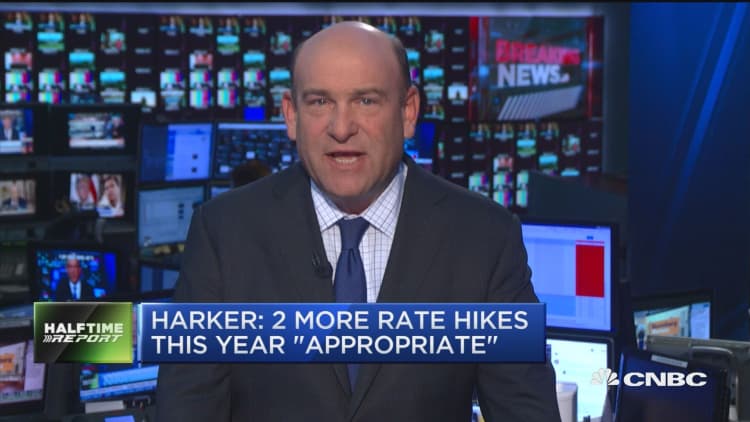UBS economists are now penciling in a rate hike by the Federal Reserve in June, followed by one in September, the financial services firm said in a note Wednesday as it updated its calls.
"We are modifying our timing of the two rate hikes this year, from July and December to June and September, in view of the March FOMC (Federal Open Market Committee) minutes that noted that the reinvestment policy will likely change 'later this year'", UBS said.
The U.S. central bank has previously indicated that it was looking to raise rates three times over the course of 2017, one of which was already initiated at its March meeting.
At its policy meeting in May, the Fed chose to hold fire on raising interest rates, yet downplayed the recent economic weakness seen in the U.S., stating that the slowing in growth during the first quarter was likely "to be transitory" and that economic conditions should improve.
Weaker than expected data from the U.S., however, has dampened analyst forecasts, while markets have been jittery this week over news coming out of Washington. Consequently, the U.S. dollar was sitting near six-month lows on Thursday against a basket of currencies. Despite this, many investors are still pricing in a June rate hike.
"The June meeting is a natural time to expect a hike and it is now essentially priced in by the market," said UBS, adding that April's nonfarm payrolls print of 211,000 jobs supported the Fed's stance on first quarter softness being transitory.
The group of economists also said they believed the FOMC would see a rate hike in June as "reflecting cumulative progress made on the dual mandate" and not just on recent economic figures.

When it came to September, however, UBS showed more caution. With the Fed having previously stated it wouldn't begin reducing the balance sheet until it was "well underway" when it comes to lifting rates, UBS saw the sequencing of when the Fed hiked and what economic data - in particular inflation - came out, as key.
"September would also be a natural time for Chair (Janet) Yellen to elaborate on the FOMC's framework for balance sheet reduction, but that it wants to accumulate more data to confirm that the economy is growing as anticipated," said UBS, with the economists adding that if all went smoothly data-wise, this could lead to the Fed announcing the reduction of its balance sheet in December.
"The FOMC still feels a sting from the taper tantrum. Even though they believe in their hearts that 'markets got it wrong,' they will likely nevertheless try doubly hard to clearly telegraph the balance sheet move (as they have been doing so far). Such caution suggests that they would most likely NOT announce the end of reinvestment and hike at the same meeting. Shrinking the balance sheet depends even more heavily on the data (especially inflation) coming in as forecast."
"A delay in September would most likely cause a delay in balance sheet unwind," UBS concludes.


